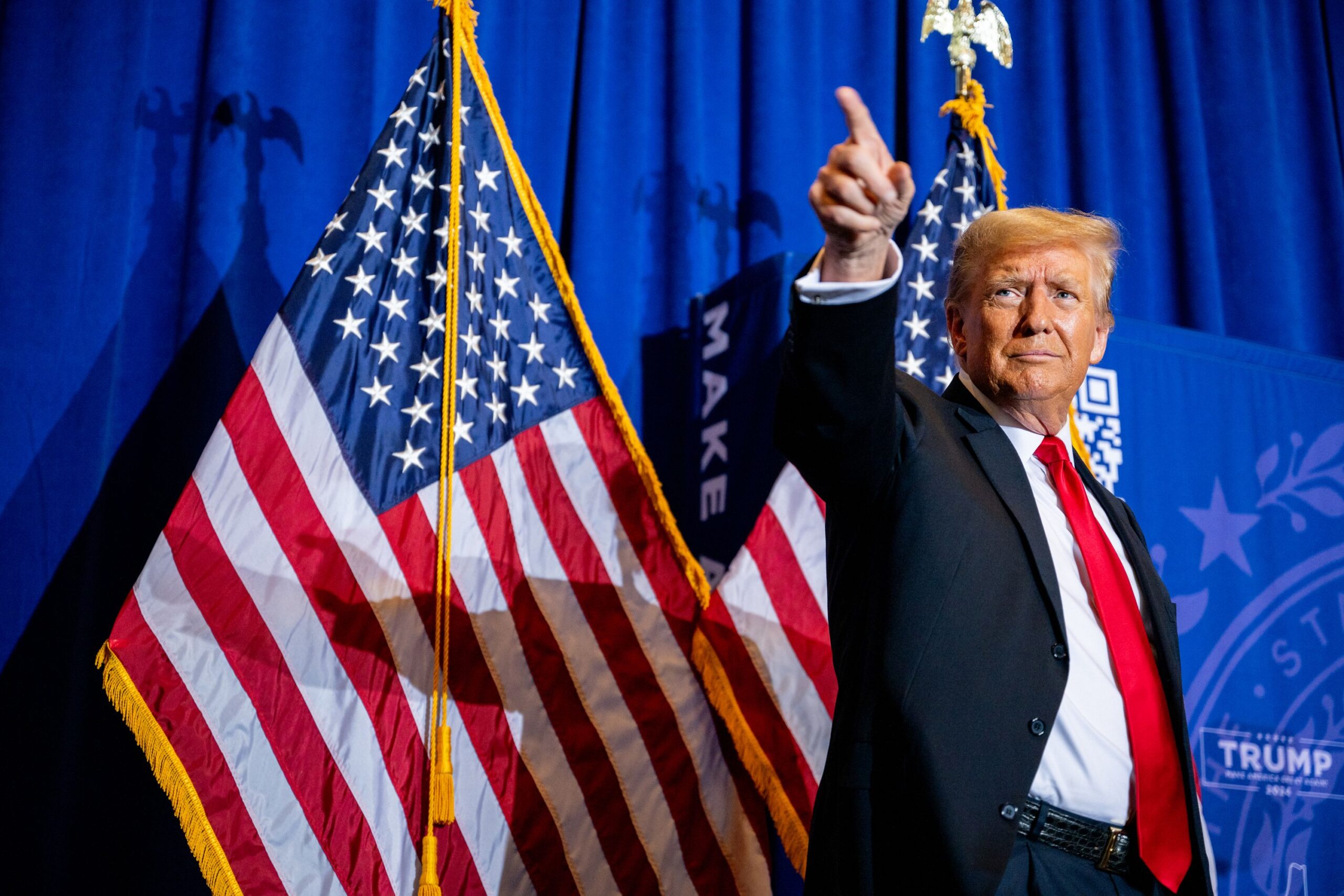Former President Donald Trump is employing a two-pronged approach in his bid for a second major election victory in New Hampshire’s primary next week, a win he hopes will swiftly conclude the GOP nominating race. Trump is intensifying his efforts to leverage his legal issues to command attention and galvanize his staunchest supporters. Simultaneously, he is increasing pressure on his main competitor in the state, his former Cabinet member Nikki Haley, who has her best opportunity there to secure an early victory against her former boss and extend the race.
Five days before the primary, Trump made it clear that his legal defense and his presidential campaign are intertwined, as he transitioned directly from a Manhattan courtroom to a campaign rally in New Hampshire. Trump voluntarily appeared in court in New York to confront E. Jean Carroll, the writer whom a civil jury has already found he sexually abused. Carroll was presenting evidence for the first time in Trump’s presence in a new trial to determine the damages he will pay for defaming her.
Trump publicly lambasted Judge Lewis Kaplan as “nasty” and a “Trump-hating guy,” disregarding courtroom etiquette. His aggressive behavior led Kaplan to threaten to eject him, marking yet another clash with a judge in a case against him. After departing the courthouse, Trump returned to New Hampshire, where he had referred to Haley by her birth name, reflecting her South Asian heritage, just 24 hours earlier. This incident seems to be the latest instance of Trump introducing a racial element into political attacks.
Despite his unconventional behavior, Trump’s appeal to some voters lies in his authenticity and disregard for political correctness. His decision to attend the Carroll case in person demonstrates his attempt to construct a narrative of political persecution as he rallies Republicans to drown out his GOP rivals and shape his potential general election clash with President Joe Biden.
Trump’s use of Haley’s given first name echoes his frequent use of President Barack Obama’s middle name “Hussein,” which also suggested racial prejudice and a sense that the 44th president was not American and may have been ineligible to serve. Trump has a history of using racial insinuations in his rhetoric to appeal to his most extreme supporters. Haley, the daughter of Indian immigrants, is a natural-born citizen born in South Carolina.
Trump’s recent behavior follows a comparatively gracious speech he gave on Monday night celebrating his win in the Iowa caucuses. His swift return to vitriol serves as another example of his unpredictability and shows that a more professional campaign structure in 2024 hasn’t significantly changed him. Trump has long shattered the standards of behavior expected of a presidential candidate and commander in chief, and recent incidents are unlikely to alter perceptions of his character.
Trump’s supporters often overlook such outrageous behavior or share his view that he’s merely reacting to what he perceives as unfair treatment. This belief is a potent aspect of Trump’s political arsenal. His readiness to say things other candidates might deem indecent is also a crucial part of his appeal to base voters, who appreciate his disdain for systems he claims are rigged against them.
Trump’s ability to reshape conventional reality is also underscored by his success in convincing millions of Republicans that a fair election in 2020 was stolen. Entrance polls taken at the Iowa caucuses on Monday evening revealed that a majority of respondents don’t believe Biden was elected legitimately and that the former president would be fit for office even if he were convicted of a crime.
From the courtroom to the campaign trail, Trump continues to push the boundaries of acceptable behavior, a trait that has become a hallmark of his political career. His actions and words in the coming days will undoubtedly continue to shape the political landscape as the New Hampshire primary approaches.

